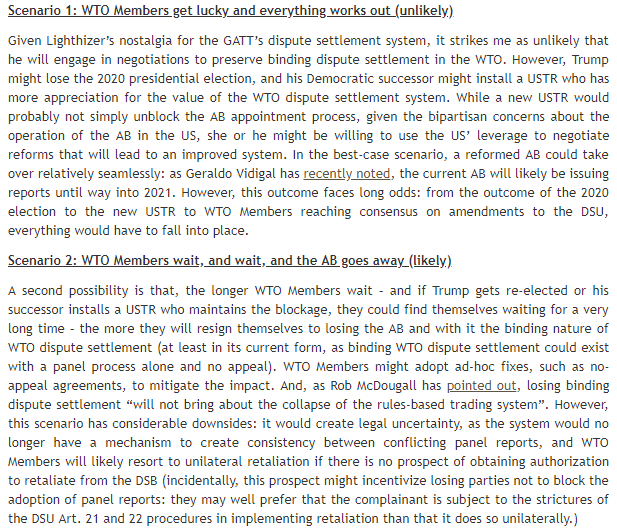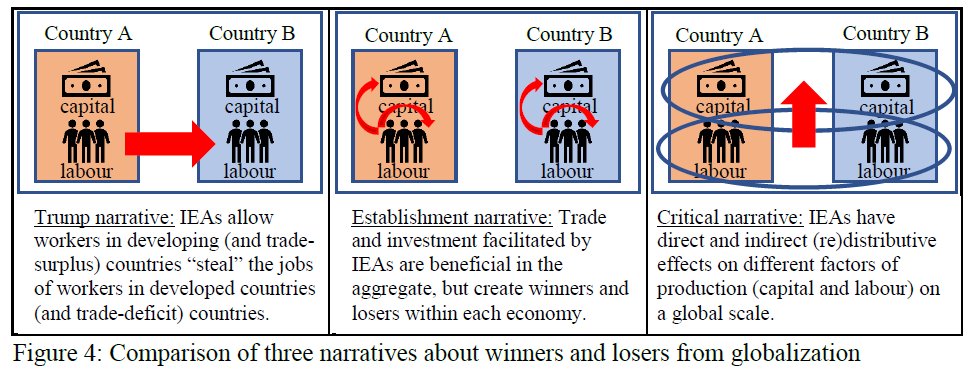
I teach law at Queen's University. I used to work at the WTO Appellate Body Secretariat.
How to get URL link on X (Twitter) App


 There is no question that history was made yesterday morning:
There is no question that history was made yesterday morning: 
 Plurilaterals were the norm for trade negotiations in the GATT years: we often think of the Tokyo Round codes as examples, but tariff bargains, including the original GATT, were plurilateral in nature as well. Why did countries adopt this approach? I identify three rationales:
Plurilaterals were the norm for trade negotiations in the GATT years: we often think of the Tokyo Round codes as examples, but tariff bargains, including the original GATT, were plurilateral in nature as well. Why did countries adopt this approach? I identify three rationales: 

 I see three benefits of keeping the trade wars within the WTO in some form: 1. it could reduce tensions; 2. it strengthens the regime; and 3. the regime's mechanisms can solve disagreements at the margins, thereby preventing retaliatory spirals. So how could it be done? 2/
I see three benefits of keeping the trade wars within the WTO in some form: 1. it could reduce tensions; 2. it strengthens the regime; and 3. the regime's mechanisms can solve disagreements at the margins, thereby preventing retaliatory spirals. So how could it be done? 2/ 

 What happens if WTO Members don’t start negotiating a DSU 2.0? They might get lucky if Trump loses the election and a new USTR agrees to reform the system. More likely, however, they will end up resigning themselves to losing the AB and with it binding WTO DS in its current form.
What happens if WTO Members don’t start negotiating a DSU 2.0? They might get lucky if Trump loses the election and a new USTR agrees to reform the system. More likely, however, they will end up resigning themselves to losing the AB and with it binding WTO DS in its current form. 

 I argue that the Trump narrative is structured around a "jobs-as-property" metaphor, according to which US workers are entitled to their jobs in a way that is akin to a property right; this rings true for workers who feel that their jobs are bound up with identity and status. /2
I argue that the Trump narrative is structured around a "jobs-as-property" metaphor, according to which US workers are entitled to their jobs in a way that is akin to a property right; this rings true for workers who feel that their jobs are bound up with identity and status. /2 

 Thanks to @snlester for posting it and to @JAHillmanGULaw for encouraging me to write it. Previous twitter discussions on this issues are here
Thanks to @snlester for posting it and to @JAHillmanGULaw for encouraging me to write it. Previous twitter discussions on this issues are here https://twitter.com/nicolas_lamp/status/1006427399209324544and here
https://twitter.com/nicolas_lamp/status/1009429896102326272